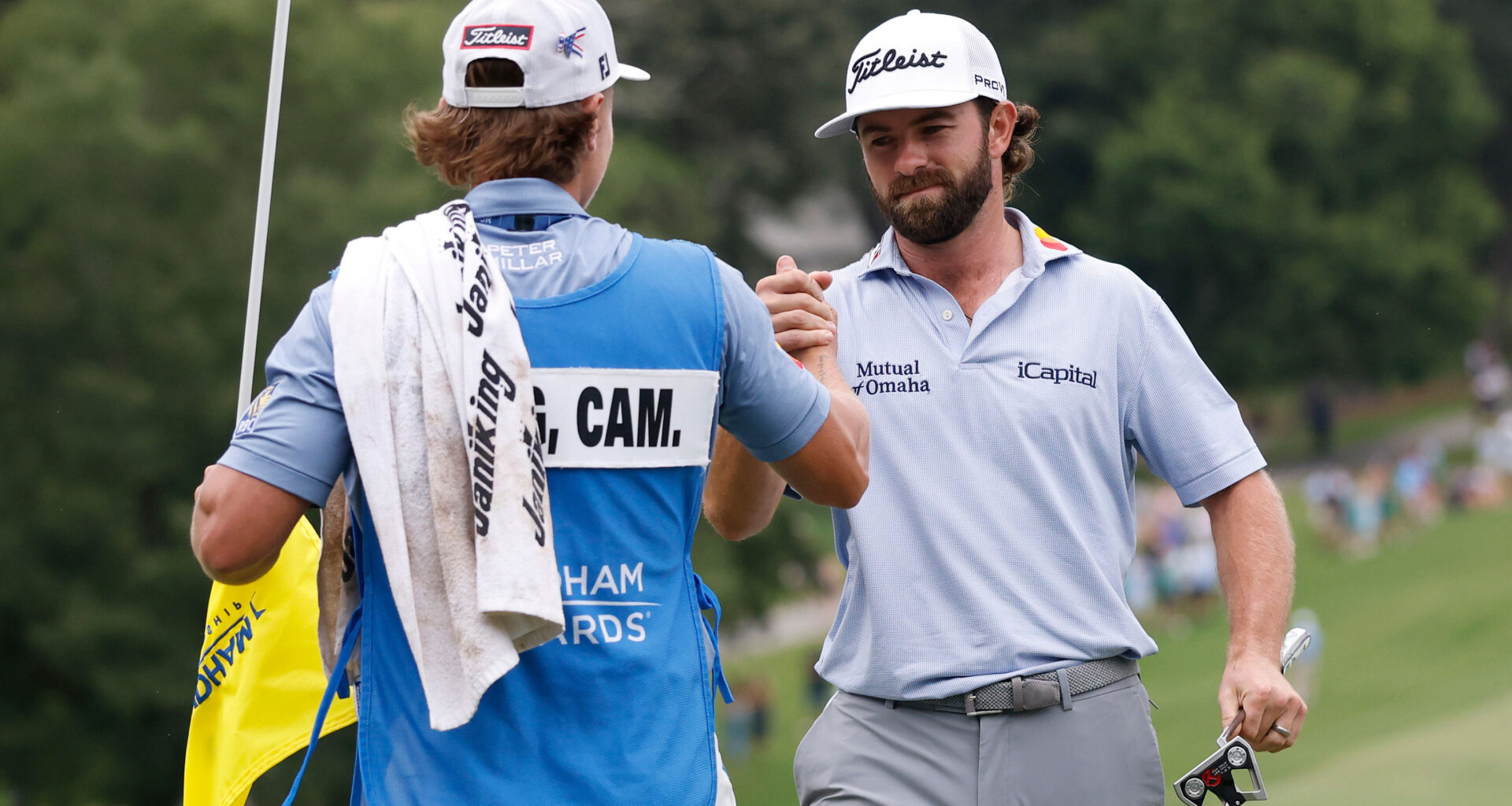If you’ve tuned in to winning moments in the Major Championships or PGA and LPGA Tour events of late, you’ll have no doubt noticed a worrying trend: players calmly acknowledging the crowd and showing less emotion than an 18-handicapper recording 36 points in a club Stableford competition.
I can’t stress enough how much this irritates me. Of course, players are welcome to celebrate how they want and winning manifests itself differently depending on who you are, what you’ve been through and how extravert a character you are.
But if this many people can’t summon a proportionate level of excitement and jubilation when they hole a winning putt – something that could turn out to be the pinnacle of their career – then professional golf has a serious problem on its hands.
You may like
In truth, it’s had a serious problem for a number of years now. LIV Golf has fragmented the men’s game and caused many fans to lose interest – a product of the incessant in-fighting, the absurd sums of money on offer, the division of top-tier talent across numerous circuits and a rising threat from YouTube golfers.
The women’s game, meanwhile, continues to be hindered by a lack of personalities and born entertainers – a criticism that absolutely applies to the PGA Tour as well.
Before we get into why that is, let’s consider some recent tour victories and how the victors reacted after holing the winning putt.

Scottie Scheffler speaks to the media after The Open Championship
(Image credit: Getty Images)
Scottie Scheffler is the obvious place to start. Before The Open Championship, he was criticised in some quarters for his seeming ambivalence towards winning the biggest titles in golf, although, in fairness, he might have struggled to accurately articulate what he meant.
But he then followed it up with a less-than-emotive reaction to claiming his first Claret Jug, which left many feeling bemused. If he doesn’t get excited about winning arguably the biggest title in golf, why should we be excited watching it?
This taking-it-all-in-your-stride mantra has flooded into professional golf at an alarming rate. Last weekend, Cameron Young won his first PGA Tour event after years of trying and seven runner-up finishes. He couldn’t even muster a fist-pump.
Lottie Woad is a generational talent and last month she won as an amateur at the KPMG Irish Open and then reigned supreme in her first professional event at the ISPS Handa Scottish Open. She barely raised a smile. There are countless other examples.
I understand the nature of the victory often dictates the celebration – think of Rory McIlroy completing the Career Grand Slam at The Masters or JJ Spaun holing a 60-footer to claim a maiden Major at the US Open – but far too often the joy isn’t proportional to the achievement.
Earlier this season, Jake Knapp shot a first-round 59 at the Cognizant Classic, the 14th in the history of the PGA Tour. I watched his post-round interview and he spoke as if he’d reeled off a routine 69. I couldn’t believe what I was seeing and hearing.
Golf is never going to be on par with the likes of football and American football when it comes to raw emotion, and it’s unfair to make comparisons given the differing nature of those sports, but surely there’s room for more merriment?
Often, it seems as if the character and soul has been stripped out of the game. It’s hard to make an argument that money hasn’t changed professional golf for the worse.
If you narrowly miss out on a title, you’re less bothered than before as you’re still picking up a cheque in excess of a million dollars. And for the top 100 or even 200 players in the world, a win isn’t a life-changing event. Zac Blair, who’s 300th in the Official World Golf Ranking, has accrued almost $8m in career earnings on the PGA Tour.

Jake Knapp shot a 59 at the Cognizant Classic in February
(Image credit: Getty Images)
The highs and lows have been squished into an ambivalent middle ground and financial rewards are so high that there’s no motivation to go against the grain. The result is a string of identikit golfers on tour and being pushed through the collegiate system, often flanked by sports psychologists who proclaim the virtues of staying neutral and sticking to the process.
Getting pumped up and letting emotion get the better of you are increasingly seen as negative traits. Which is odd, given the Ryder Cup – where players have historically played for national/continental pride instead of monetary gain – is a hotbed of passion and fervour. It also happens to be the most popular tournament in golf.
I don’t know where we go from here and I don’t know what the solution is, because we can’t force players to show more passion and personality – how they act is a product of myriad recent factors that have changed the game for good.
Trying to effect any change feels very much like shutting the stable gate after the horse has bolted.

